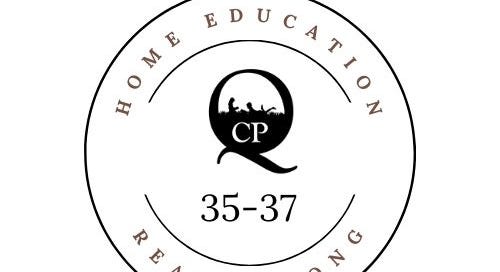Home Education (pp. 35-37)
VI.—CONDITIONS OF HEALTHY BRAIN-ACTIVITY (cont.)
Free Perspiration.—Another point must be attended to, in order to secure that the brain be nourished by healthy blood. The blood receives and gets rid of the waste of the tissues, and one of the most important agents by means of which it does this necessary scavenger’s work is the skin. Millions of invisible pores perforate the skin, each the mouth of a minute many-folded tube, and each such pore is employed without a moment’s cessation, while the body is in health, in discharging perspiration—that is, the waste of the tissues—upon the skin.
Insensible Perspiration.—When the discharge is excessive, we are aware of moisture upon the skin; but, aware of it or not, the discharge is always going on; and, what is more, if it be checked, or if a considerable portion of the skin be glazed, so that it becomes impervious, death will result. This is why people die in consequence of scalds or burns which injure a large surface of the skin, although they do not touch any vital organ; multitudes of minute tubes which should carry off injurious matters from [p 36] the blood are closed, and, though the remaining surface of the skin and the other excretory organs take extra work upon them, it is impossible to make good the loss of what may be called efficient drainage over a considerable area. Therefore, if the brain is to be duly nourished, it is important to keep the whole surface of the skin in a condition to throw off freely the excretions of the blood.
Daily Bath and Porous Garments.—Two considerations follow: of the first, the necessity for the daily bath, followed by vigorous rubbing of the skin, it is needless to say a word here. But possibly it is not so well understood that children should be clothed throughout in porous garments which admit of the instant passing off of the exhalations of the skin. Why did delicate women faint, or, at any rate, ‘feel faint,’ when it was the custom to go to church in sealskin coats? Why do people who sleep under down, or even under silk or cotton quilts, frequently rise unrefreshed? From the one cause: their coverings have impeded the passage of the insensible perspiration, and so have hindered the skin in its function of relieving the blood of impurities. It is surprising what a constant loss of vitality many people experience from no other cause than the unsuitable character of their clothing. The children cannot be better dressed throughout than in loosely woven woollen garments, flannels and serges, of varying thicknesses for summer and winter wear. Woollens have other advantages over cotton and linen materials besides that of being porous. Wool is a bad conductor, and therefore does not allow of the too free escape of the animal heat; and it is absorbent, and therefore relieves the skin of the clammy sensations [p 37] which follow sensible perspiration. We should be the better for it if we could make up our minds to sleep in wool, discarding linen or cotton in favour of sheets made of some lightly woven woollen material.
We might say much on this one question, the due nutrition of the brain, upon which the very possibility of healthy education depends. But something will have been effected if the reason why of only two or three practical rules of health is made so plain that they cannot be evaded without a sense of law-breaking.
I fear the reader may be inclined to think that I am inviting his attention for the most part to a few physiological matters—the lowest round of the educational ladder. The lowest round it may be, but yet it is the lowest round, the necessary step to all the rest. For it is not too much to say that, in our present state of being, intellectual, moral, even spiritual life and progress depend greatly upon physical conditions. That is to say, not that he who has a fine physique is necessarily a good and clever man; but that the good and clever man requires much animal substance to make up for the expenditure of tissue brought about in the exercise of his virtue and his intellect. For example, is it easier to be amiable, kindly, candid, with or without a headache or an attack of neuralgia?
Are you following along with us? Grab the reading tracker bookmark!
You will find an appendix with questions in the back of Home Education. These questions were for the students or persons preparing to become “Qualified Members” of the Parents’ National Educational Union. We put these questions on paper for you to use, if you’d like, as you ponder Mason’s writings. A new one will be available every Monday.
Thank you to the team at Charlotte Mason Poetry for making the digital text of Charlotte Mason’s volumes available for all to use.




